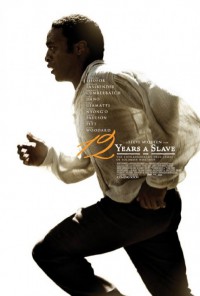 For a while, Gravity in my eyes was the uncontested best film of the year. For a while I hadn’t had the chance to see 12 Years A Slave, and the other night while me and a friend were bored I suggested we see it. The theater was packed with people of all ages. By the end of the film, everyone left in complete silence, impressed by the film and offended by its depictions.
For a while, Gravity in my eyes was the uncontested best film of the year. For a while I hadn’t had the chance to see 12 Years A Slave, and the other night while me and a friend were bored I suggested we see it. The theater was packed with people of all ages. By the end of the film, everyone left in complete silence, impressed by the film and offended by its depictions.
Gravity’s hold for the best film of the year is shaken. It now has an equal.
The film is based on the autobiography of Solomon Northup, a free man who lived in Saratoga, New York, in the mid-1800s. In what was a common practice, he was lured into a situation, kidnapped, and shipped to the south under a false name to serve as a slave. He is sent from plantation to plantation, hiding his identity and trying his best—as any person could, with limitations of character—to gain his freedom and keep his sanity.
What Solomon sees and is subjected to is grueling. Director Steven McQueen (Shame, Hunger) doesn’t spare us any details: he portrays slavery, from all its angles, in a blatant way. Blood is shed, scars are made, and people are used, sexually and physically, shamelessly. The movie never indulges in the Saw school of gore-porn; in fact, it’s never really gory, but grisly…and since it’s a true story and slavery was a fact of life, we’re hypnotized and repelled by the images thrown at us.
The strongest factor for the film are the performances. Everyone—from the leads to the smallest supporting roles—are affecting. Chiwetel Ejiofor, who plays Solomon Northup, deserves the Oscar; Leonardo DiCaprio, for all his talent, has some serious competition, and if either wins I will be satisfied. Never once does the actor strike a false note: we he’s happy, we’re smile; when he’s sad, we cry. Every atrocity he sees and experiences we feel like a whip-crack to the skin.
He is surrounded by exceptional talent. Michael Fassbender plays Edwin Epps, an evil plantation owner who takes ugly pleasure in physically and sexually destroying his “property”. Lupita Nyong’o plays Patsy, a born-and-bred slave who is the target of Epps’ lust and his wife’s rage. Both of these people have their scenes of brilliance—particularly Nyong’o, whose brilliant soap monologue drew a sad sigh from the audience. Paul Giamatti, Paul Dano, Brad Pitt, and Alfre Woodard, among many others, have magnificent extended cameos, coloring the setting.
The production is high, with only minor quibbles. McQueen’s direction, while brilliant, has occasional missteps. He lingers sometimes a bit too long on certain shots; we don’t need two minutes of a contemplative Solomon staring off-camera into nothing. The music, while appropriate with its violin-centric melody, was also very simplistic and at times inappropriate for the time period (I’m looking at you, riverboat scene with the violent electronic pulsing).
The audience was spellbound by the entire movie. From the first frame to the final shot, every eye was riveted to the screen. As everyone shuffled from the theater, there was dead silence. It wasn’t the silence of disappointment. It was the silence of shame: the film doesn’t show fiction, but hard truth. It was the silence of bravery, lauding the filmmakers and performers. And it was the silence of praise.
—————————
For More Information Visit:
—————————
http://www.imdb.com/title/tt2024544/combined
http://www.movieweb.com/movie/12-years-a-slave
http://www.foxsearchlight.com/12YEARSASLAVE